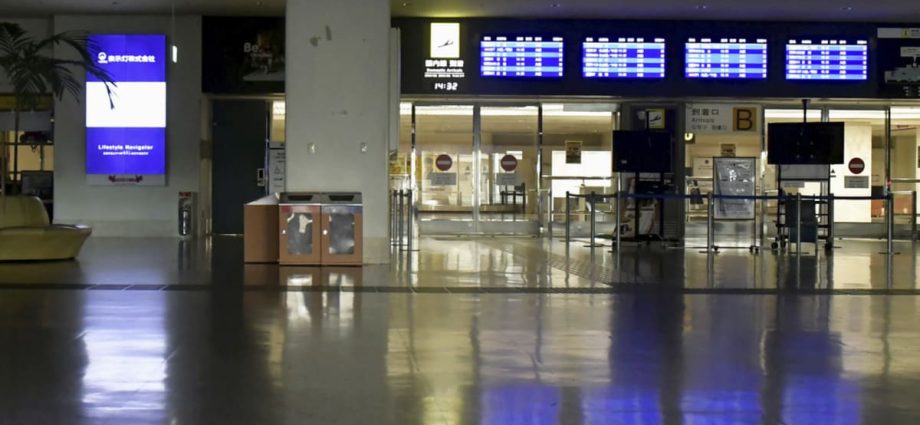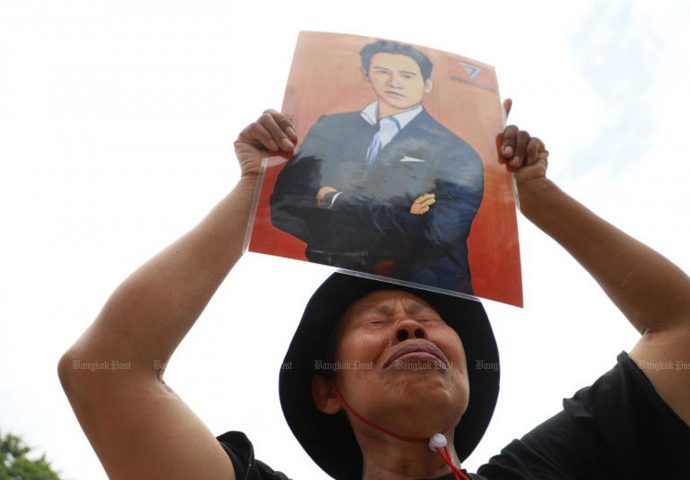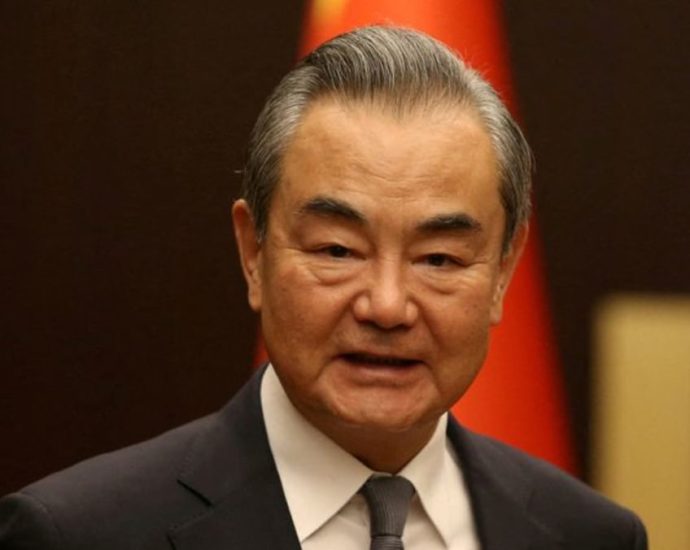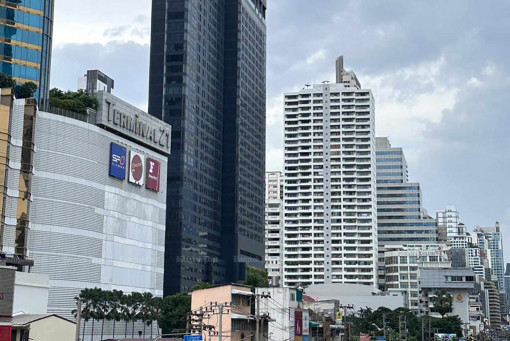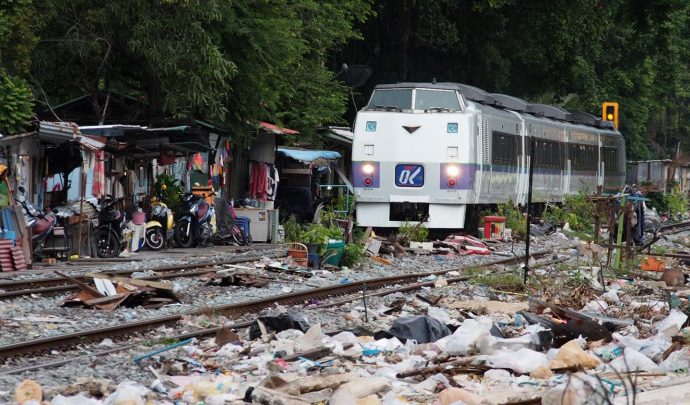Typhoon Khanun knocks out power to one-third of Okinawa households
TOKYO: High winds hit power lines in Japan’s Okinawa and knocked out electricity to more than 200,000 households on Wednesday (Aug 2) morning, as powerful and slow-moving typhoon Khanun neared the country’s southwestern islands threatening torrential rains. Hundreds of thousands of people in the tropical prefecture, a popular tourist destinationContinue Reading
Pheu Thai MP frets over Pita petition
PUBLISHED : 2 Aug 2023 at 07:11

A senior Pheu Thai figure admitted on Tuesday he is concerned the Constitutional Court will accept for deliberation a petition seeking a ruling on the rejected renomination of Move Forward Party (MFP) leader Pita Limjaroenrat.
The court has scheduled a hearing for Thursday to consider whether to review the Ombudsman’s petition, which also asked it to order parliament to postpone the prime ministerial vote.
Legal experts say the court can either reject the petition, accept it for consideration, or accept it and put parliament’s prime ministerial selection process on hold pending its ruling.
Pheu Thai list-MP Sutin Klungsang said the court’s decision will decide whether parliament’s joint sitting on Friday to select the prime minister will go ahead and if Pheu Thai can nominate its own candidate.
Pheu Thai, which is taking the lead in forming the coalition, plans to nominate Srettha Thavisin.
However, Mr Sutin said the eight prospective coalition partners will have to hold talks and decide their next move if the court rules Mr Pita can be renominated.
Thanakrit Vorathanatchakul, a prosecutor attached to the Office of the Attorney-General (OAG), said at issue is whether the rejected renomination of Mr Pita is a violation of the constitutional rights of those seeking a judicial review.
He said complainants objecting to parliament’s rejection of Mr Pita’s renomination see it as a violation of their rights.
The individual whose rights are deemed affected in this case is Mr Pita, but the MFP leader is not one of the petitioners, he said. If the court does not agree, it may reject the petition.
“And if the court (does that), a request seeking the postponement of the prime ministerial vote is automatically dropped,” he said.
Mr Thanakrit cited as an example a petition involving a charter amendment of the two-ballot system passed by parliament.
New Palang Dharma Party leader Ravee Maschamadol, who disagreed with the change, sought a judicial review and claimed it was a violation of his rights as an MP.
The court threw the petition out because the change involved legislative work carried out as stipulated in the charter. It said Dr Ravee’s constitutional rights were not violated.
Cheaper prosthetic fistula helps NHSO
PUBLISHED : 2 Aug 2023 at 06:50

The National Health Security Office (NHSO) has introduced a prosthetic fistula made of natural rubber for subscribers of the universal healthcare (UHC), also known as the “gold card” scheme, in a bid to save more than 540 million baht of the medical budget.
Dr Athaporn Limpanylers, deputy secretary-general of the NHSO, said on Tuesday that he inspected on July 18-19 the fistula meant for UHC subscribers in Yala and Songkhla.
He said he was told of the products by Dr Worawit Wanichsuwan, director of research at the Medical Institute of Prince of Songkla University (PSU).
The prosthetic fistula was funded by the National Research Council of Thailand (NRCT). The PSU took about six years to finish the research, Dr Worawit said.
Researchers used natural rubber from the South to produce it, based on the suitability of the environment and weather, he added.
The NHSO has been scouting the product in a bid to purchase it in bulk and support its Thai subscribers who are happy to use a prosthetic fistula made in Thailand, which it can provide without charge to support Thai medical products, Dr Worawit said.
Before the introduction of this fistula, Thailand had to import similar but more expensive products from other countries, which can be costly as one patient must use five sets of a prosthetic fistula, and each one costs around 300 baht.
About 54,000 gold card subscribers require a prosthetic fistula and excretory support each year.
If all of the scheme’s 150,000 members used a prosthetic fistula for one year, the NHSO would have to pay 2.25 billion baht.
However, the new product costs just 190 baht, translating into huge savings, Dr Worawit said.
Dr Athaporn said the NHSO has stressed the importance of using innovative Thai products to replace those imported from abroad.
Not only will this save money, but it will support Thai manufacturers and improve the economy, he added.
US invites new Chinese foreign minister Wang Yi to Washington
WASHINGTON: The United States has formally invited China’s newly reappointed foreign minister, Wang Yi, to Washington, the US State Department said on Tuesday (Aug 1), after Wang’s predecessor was abruptly removed from his post by Beijing. China reappointed veteran diplomat Wang last week, replacing former rising star Qin Gang, whoContinue Reading
âNo turning backâ: Lionesses captain Rosnani Azman herded cattle, learned Japanese to fuel pro football dream

“I didn’t really know how to play then so I would often kick the ground and my toes would bleed. But I enjoyed it (playing),” she added.
Love was forged and her dream began to take shape.
By the age of seven, Rosnani was playing competitively, at first for her primary school’s female football team, then at Woodlands Secondary School.
She was invited to join the junior nationals and by the time she turned 17, her dream had fully formed.
“NO TURNING BACK”
“I admit I was very naive as a young girl,” said Rosnani, adding that she didn’t know at the time what it took to play professionally, only knowing she did not want all the time spent training instead of hanging out with her friends to go to waste.
But even as she became an adult, the dream wouldn’t waver. In a “realistic” move, she studied aerospace engineering at Republic Polytechnic, but told her parents she “wanted to go all the way” with football.
“There was no turning back,” she said, even though she continued to worry that no Singaporean woman had yet been given a professional football contract at the time.
Despite the odds, Rosnani’s parents were supportive, squirreling away any monetary awards their daughter received, including the Singapore Olympic Foundation scholarship set up with billionaire philanthropist Peter Lim, so she could one day choose to venture out of the country alone.
“My parents helped me save because I’d said I didn’t want to use their money to go overseas … It’s my life,” she said.
“I told them this: You can work all your life, through your 40s and through your 50s, but you can’t play at a professional level forever.
“While I can still play, why not go for it? It won’t be easy, financially and in terms of stability, but it’s the experience that matters,” she added.
Rosnani dreams of the day she and her female peers would be offered professional contracts in Singapore.
“Even people I know who don’t really like football watch the Women’s World Cup,” she said. “So I can see it (women going professional) happening … Hopefully soon.”
Meanwhile, female footballers continue to juggle training with other work.
National training takes up around six hours a week and club training occupies around the same amount of time, including weekend games.
“Even though we play in the national team, we’re not professional players. Everyone has other jobs and still commits to training. It’s hard to juggle,” she said.
But Rosnani doesn’t have a full-time job and she doesn’t want one. Her eyes are poised on the prize.
“I’m just doing part-time work because I want to be ready to fly for a trial overseas.
“Japan was just the start.”
Developer of Ashton Asoke ‘must be held responsible’
Chadchart insists BMA not at fault
PUBLISHED : 2 Aug 2023 at 06:16
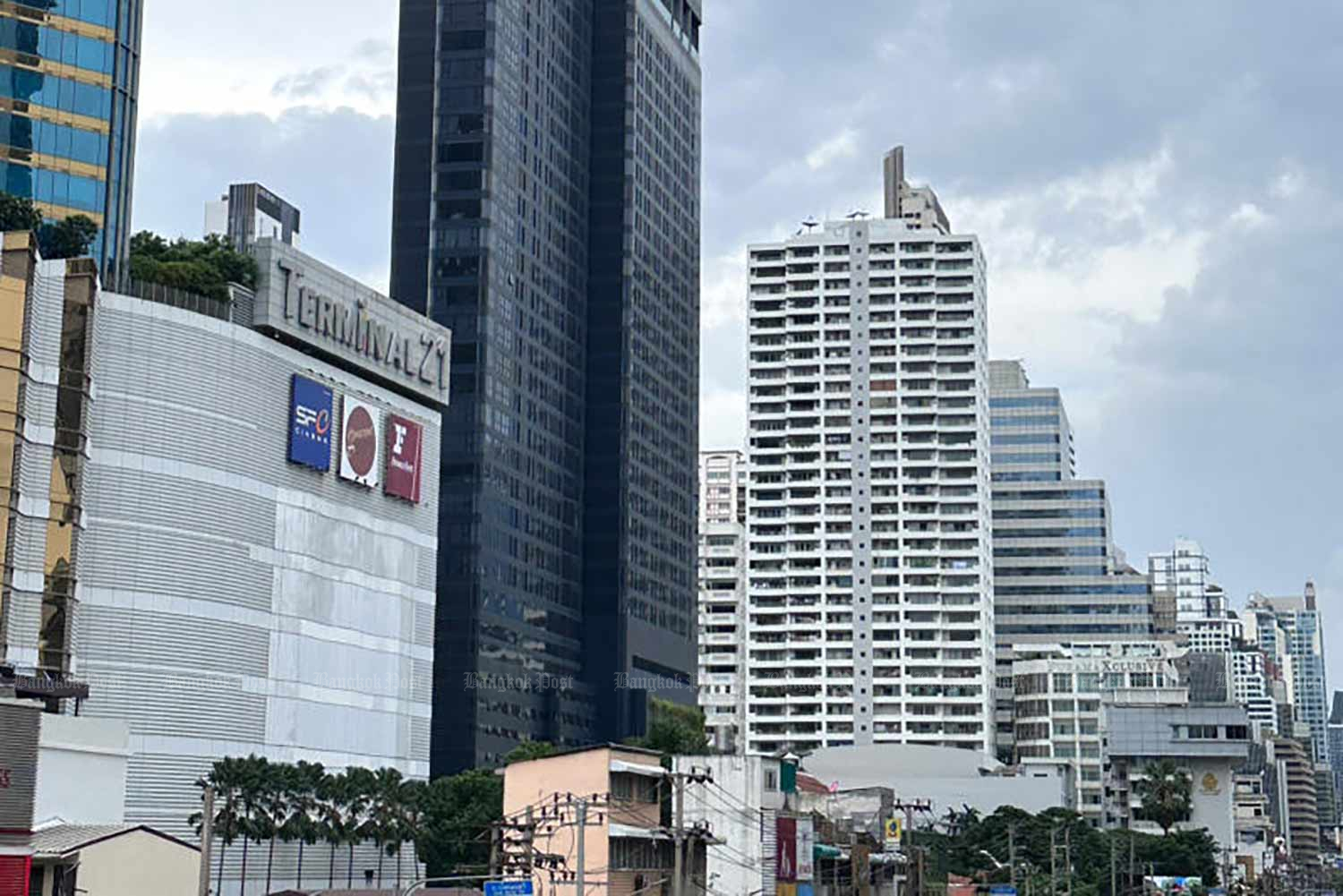
The owner of the Ashton Asoke project is responsible for building an entrance to the condominium complex in accordance with the required standards, so they must be held responsible for failing to do so, Bangkok governor Chadchart Sittipunt said on Tuesday.
Speaking for the first time since the Supreme Administrative Court retroactively revoked Ashton Asoke’s construction permit over substandard access to the main road, Mr Chadchart insisted the Bangkok Metropolitan Administration (BMA) officials did their duties to the best of their ability.
The 6-billion-baht luxury condominium project in Watthana district has been in the headlines since last week after the court ruled the entrance to the property did not meet the minimum required standards for a 50-storey building.
Meanwhile, its developer, Ananda MF Asia Asoke Co, is insisting that they met all the requirements for a building permit and that they secured the necessary approvals from all relevant agencies, including the BMA, before construction began.
Mr Chadchart said on Tuesday that it was clearly stated in the permit requirements that high-rises over a certain height must be connected to a main road by an entrance that has to be at least 12 metres wide.
The rules also clearly state the company will be held liable for any problem that arises in the future, the governor added.
Ashton Asoke’s main entrance is connected to Asok Road. However, part of the entrance belongs to the Mass Rapid Transit Authority of Thailand (MRTA), which expropriated the land to build the entrance to an underground train station right on the project’s doorstep. As a result, the court decided last week that the project lacks a proper entrance and revoked its permit.
While the governor believes Ashton Asoke should be held responsible for the matter, he also said that a lot of the confusion surrounding the minimum requirements could have stemmed from the actions of officials in the previous governor’s administration.
Mr Chadchart is expected to hold a press conference on the issue tomorrow.
Meanwhile, Srisuwan Janya, president of the Stop Global Warming Association, warned the BMA it was duty-bound to implement the court’s ruling in a timely manner or risk breaking the law.
According to the activist, the BMA must notify the condo to immediately rectify the issues with its entrance.
In the meantime, he said, the BMA must do what it can to keep people out of the property until the issues are sorted.
If the condominium’s developer is unable to rectify the problem in a timely manner, the BMA must strictly enforce the Buildings Control Act by ordering the complete or partial demolition of the condominium complex, he said.
“The BMA can’t go on being the saint and letting the condominium developer continue its business as usual without setting a definite timeframe for the developer to address the issues that must be fixed,” said Mr Srisuwan.
Clear-up crew put on job after pics of ‘rubbish’ railway go viral
PUBLISHED : 2 Aug 2023 at 06:07
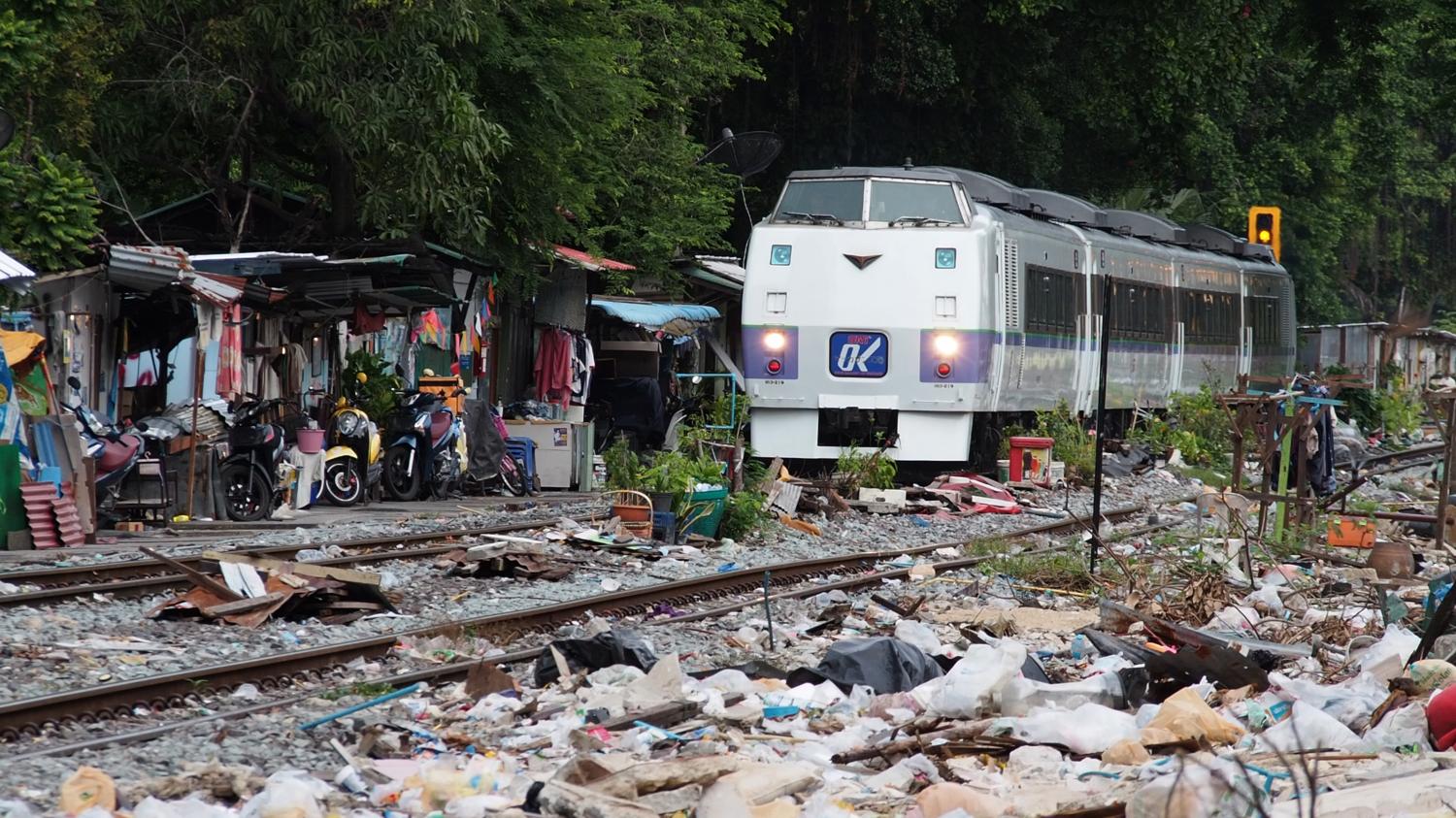
The Bangkok Metropolitan Administration (BMA) and the State Railway of Thailand (SRT) have sent a 30-strong team to clear rubbish along rail tracks near Phaya Thai after a Japanese netizen posted pictures of a Kiha-183 train, donated by Japan to serve tourists, passing through an apparent dump site in the area.
Twitter user @tabinezumiworld posted the picture on Sunday with a message saying it showed the gap between rich and poor in Bangkok.
The area is to be used for building a new elevated train line.
In a subsequent comment, he also posted a message in both Japanese and Thai that he knew that homes had recently been demolished for the new project.
He also noted that “There was broken glass, pieces of concrete and leftover food,” and he wondered when all this rubbish would be collected.
“It is unsanitary and has a bad odour. I hope for a speedy resolution. I urge the Thai government, City Hall and SRT to take action,” he tweeted.
The post was picked up by ThailandFootpath Facebook, which has more than 300,000 followers and also later carried by mass media.
Bangkok governor Chadchart Sittipunt on Tuesday responded to the outcry by inspecting the area himself.
He said the piles of garbage along the railway are a result of the demolition of about 100 homes of local communities living illegally along a 1.2km stretch of track.
Mr Chadchart said the demolition took place last month to pave the way for the construction of the Don Mueang-Suvarnabhumi-U-Tapao high-speed rail route, but after the demolition, the rubbish had just been left there.
Ekkarat Sriarayanpong, head of the SRT governor’s office, said that the SRT and BMA had sent a 30-strong team to clean up the area, and a backhoe tractor and trucks were used to remove and transport the waste from the area.
He said that SRT will set up a fence and will also put up “no trespassing” signs to stop any intruders and those who may throw away their own rubbish in the area.
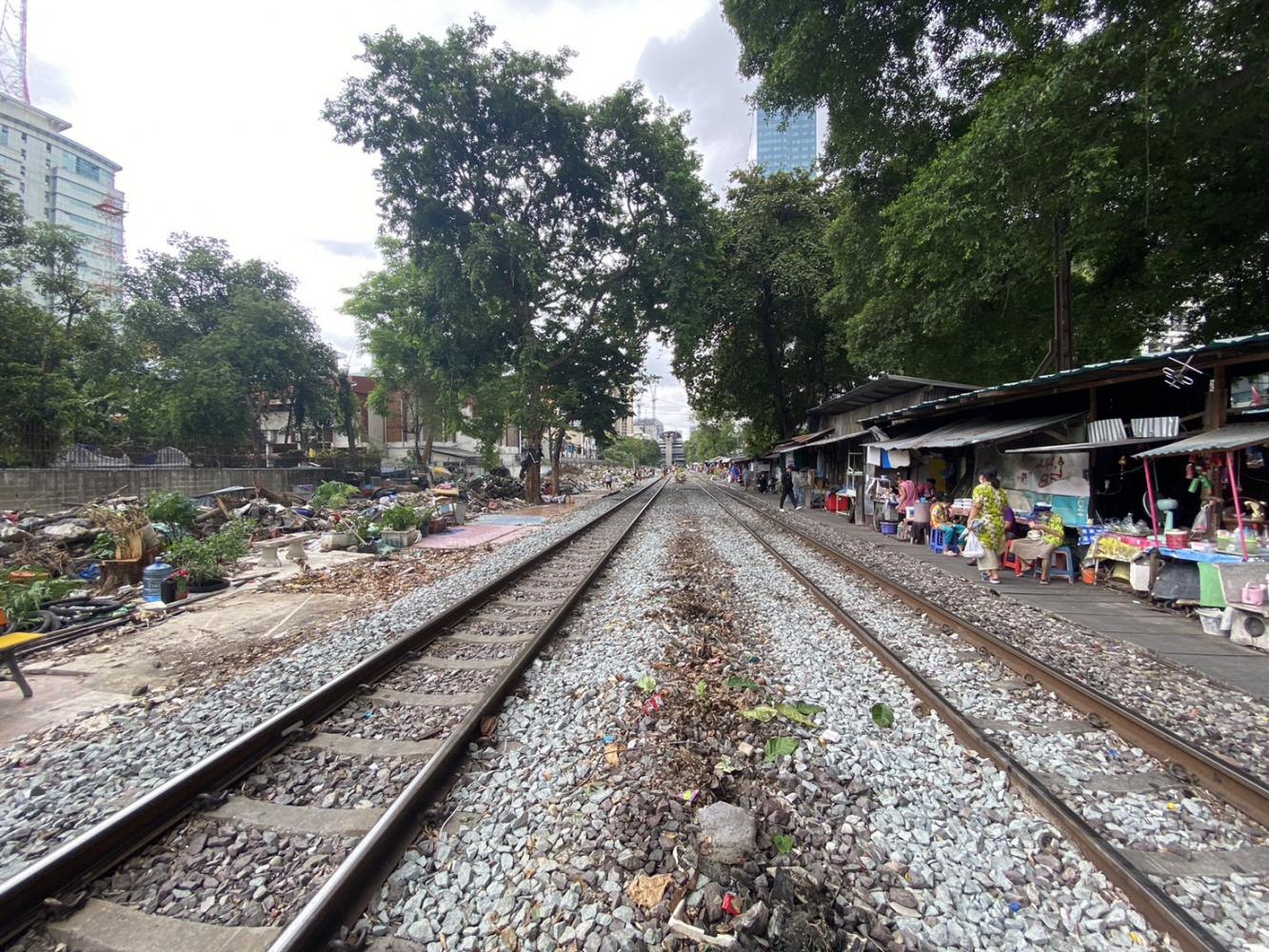
Maya Bay closing for natural rehabilitation
PUBLISHED : 2 Aug 2023 at 05:56

KRABI: Maya Bay — made world famous by the Hollywood blockbuster The Beach starring Leonardo DiCaprio 23 years ago — will be closed for two months during the monsoon season for the purposes of natural rehabilitation.
It was closed off to the public and tourists from Tuesday until Sept 30, said Ratchanok Phaenoi, chief of Hat Noppharat Thara-Mu Koh Phi Phi National Park.
She said this is also being done for tourist safety, as strong waves during the rainy season will make it difficult for boats to dock at Loh Sama Bay on Koh Phi Phi Le, which is within walking distance of Maya Bay.
It reopened to tourists on Jan 1 last year after being off-limits for three and a half years due to overcrowding, which led to the destruction of coral reefs and its marine ecology.
Since last year, the park has capped the total number of tourists to about 4,000 a day and does not allow people to swim in the bay in order to protect the island’s sensitive ecology.
The park forbids tourist boats from docking at the bay but has a pier at Loh Sama for them. Maya Bay will be closed every year during the monsoon season from now on, the park said. Ms Ratchanok said the break will help restore its ecology.
Employment figures paint rosier picture for 2023 Q2
PUBLISHED : 2 Aug 2023 at 05:56

Figures showing there were 39.7 million people in full-time employment in the second quarter this year, an increase of 660,000 on the same period last year, have been released by the National Statistical Office (NSO).
Deputy government spokeswoman Traisuree Taisaranakul on Tuesday revealed the improvement in the employment situation in the country after the NSO data showed the number of people working full time or around 35-49 hours per week has increased by about 560,000.
The number of people who work more than 50 hours a week increased by about 350,000, while those in part-time jobs or working less than 35 hours decreased by 240,000 people.
Unemployment also declined to 1.1% — with around 430,000 people still out of work, compared to the same period last year in which 1.4% of the working population, or about 550,000 people, were without jobs, Ms Traisuree said.
“Indicators of the overall labour situation are positive,” she said. In addition, there are now only 74,000 people who have been unemployed for more than a year in the second quarter, which is down from 140,000 people in the same period last year, added Ms Traisuree.
Srettha to play it safe
S112 to stay untouched on Pheu Thai’s watch

Srettha Thavisin, a Pheu Thai prime ministerial candidate who is expected to be formally nominated ahead of Friday’s vote, has given assurances that Pheu Thai will leave the lese majeste law alone after some senators expressed scepticism about his stance on the matter.
He said that a PM candidate nominated by any party that still seeks to amend Section 112 of the Criminal Code, known as the lese majeste law, will not receive support from the senators.
“If Pheu Thai nominates me for the next prime ministerial vote, Section 112 amendment must be left untouched. Pheu Thai has made it clear it will not amend or scrap the law.
“The party wants to form a new government and move the country forward. It is necessary to defuse tensions over Section 112.
“Today, addressing the bread-and-butter issues affecting people’s daily lives is an overriding priority. Improving the economy must come first,” Mr Srettha said.
Several senators had not been convinced by Mr Srettha’s stance and said they may not vote for him after they watched a video clip of him saying during a campaign event ahead of the May 14 election that he would support Section 112’s amendment.
However, Mr Srettha later backtracked, saying Pheu Thai would not lay a finger on Section 112 if it led the new government, one day after parliament rejected the renomination of Move Forward Party leader Pita Limjaroenrat for the prime ministerial post on July 19.
Mr Srettha said on July 20 that Section 112 amendment must not be attached to the eight prospective coalition parties’ new bid to win the prime ministerial vote; otherwise, the candidate nominated by the bloc would not get the support needed from the senators and parties outside the bloc.
If Pheu Thai becomes the leader of the eight-party bloc, Section 112 amendment would be off the agenda, he said.
The MFP’s determination to amend Section 112 was regarded as a key factor in Mr Pita’s failure to gain sufficient support for his bid to be named prime minister from MPs and senators in the first vote on July 13.
Under the constitution, a PM candidate needs the support of at least half of the 750 members of both the lower and upper chambers of parliament, or 376 votes in total.
Linthiporn Warinwatchararoj, a party-list MP for Pheu Thai and acting party spokeswoman, on Tuesday said that Mr Srettha also admitted on July 20 that any move to amend Section 112 would pose a major hurdle to Pheu Thai’s bid to form a government.
According to a Pheu Thai source, the party will issue a statement ahead of Friday’s vote to reaffirm its stance that it will not support any move to amend Section 112 and had opposed the MFP’s bid to include it in the MoU in the first place.
Senator Jadet Insawang said that if Mr Srettha is nominated for the prime ministerial vote on Friday, he should be asked to outline his vision before the vote and members of parliament should also be allowed to quiz the candidate before making their decision.
Parliament president Wan Muhamad Noor Matha previously said parliament would convene on Friday, but whether the new vote for a prime minister takes place that day will depend on a Constitutional Court decision the day before.
The court will announce if it is to accept a petition regarding the rejected renomination of Mr Pita as prime minister. If accepted, the vote will not occur until the court’s ruling.

